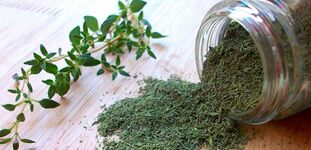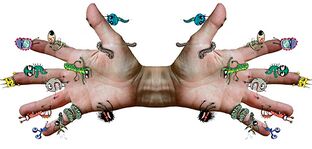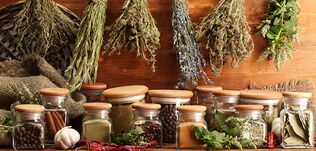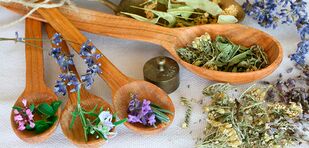
By parasites we mean the helminths or parasitic worms, their larvae that live in the human body. For a helminth, such cohabitation is the only way to exist and reproduce, but a person suffers from it.
How parasites enter the body
Worm infection (helminthic invasion) is a dangerous disease for humans. The host's body releases nutrients, vitamins and essential elements from the parasites and acquires health problems on its own. Human roundworms and pinworms eat the host's food in the intestines or absorb protein, fat, and carbohydrate from it.
Helminths deprive a person of vitamins, microelements: they take vitamins A and C from food, and if they are lacking, they suck them from organs and tissues. Hookworms suck blood through the walls of the human intestine. Helminths that live in the intestines injure the walls due to the fact that they are attached with the help of the oral cavity with teeth. Accordingly, those useful and necessary substances that the host uses are used for the growth and development of parasites.
Helminths secrete substances called toxoids that are foreign to the human body. Dysbacteriosis, eating disorders accompanied by bloating, diarrhea and pain originate from toxoids in the intestines. In the lungs, toxoids cause asthma attacks, coughing.
When there is a general understanding of the dangers of helminths in the human body, it becomes clear that there is a need to treat the parasites in the human body. Helminths are excreted with drugs or by traditional methods. Pharmaceuticals that relieve worms are toxic and have contraindications. Therefore, appeal to them when there are too many parasites in the body. At the initial stage of infection, folk remedies for parasites in the human body will give the result.
Folk remedies for parasites and drugs will not solve the problem forever. After being treated, a person will be infected again if they neglect personal hygiene rules, handle food improperly and come into contact with patients. The reason is the "circulation" of parasites in nature. Parasitic worms live in the bodies of animals, fish and humans. Females lay about 240, 000 eggs per day. The eggs of the parasites enter food processing products and are released into the environment.

The shell of helminth eggs consists of three layers, it is resistant to temperatures down to -20 ° C, chlorine. The larva in the egg may be in a "frozen" state for up to 1 year before favorable conditions appear. Ascaris, pinworms, toxocara, hookworms are deadly for eggs - temperatures from 60 ° C, direct sunlight, ultraviolet light, drying out from dehydration. At 70 ° C, the eggs are destroyed in 10 seconds.
During the hot season, entering the soil, the larva develops and matures. Through unwashed hands, vegetables and fruits, dirty water, parasite eggs enter the intestines, where the membrane dissolves under the influence of juices and the larva emerges. Cattle tapeworm eggs, roundworms pass through the circulatory system of animals and fish and can enter the human body through uncooked meat or fish.
Symptoms of parasites in the body
- increased appetite, desire to eat sweets. Parasitic worms feel uncomfortable in acidic and bitter environments;
- poor condition of hair, skin and nails, because vitamins and microelements absorb helminths;
- intoxication of the body, which is manifested by a lack of appetite, nausea, general weakness of the human body due to toxoids secreted by parasites;
- allergy to toxoids, which manifests on the skin as a rash, itching and peeling;
- itching in the anus, which occurs at night when female parasites lay eggs in the anus;
- intestinal dysbiosis, frequent bloating, diarrhea, pain;
- weakened immunity and low resistance to disease, as the parasites secrete cytakine substances that suppress the body's defenses;
- sudden change in weight. An infected person does not always lose weight, they can begin to gain weight, as the helminths absorb vitamins, trace elements and proteins, leaving harmful substances for the owner.
The diagnosis of infection with parasitic worms is carried out on the basis of analyzes of feces, blood, ultrasound examination of organs. The accuracy of the stool analysis is lower than the blood test, the reliability of which is 90%. The detection of parasites by the blood consists in detecting antibodies directed against substances released during the life of the helminths. Antibodies determine the type of parasite, the number of individuals in the body, and the duration of infection.
Recipes and traditional remedies for parasites
Popular recipes for parasites are less effective and faster than drugs, but safer for the body. Plants sold in pharmacies are used as a "weapon".
Garlic juice
Garlic contains phytoncides - substances used by plants to protect themselves from pathogenic microorganisms and protozoa. Phytoncides kill parasites. Garlic juice is used for processing. Take three times a day, starting with five drops and increasing to 15ml.
Absinthe tincture

Wormwood, like garlic, contains phytoncides and fights parasites. For treatment, a tincture is used: 1 tablespoon of wormwood is poured into 100 ml. alcohol and brewed for two weeks. Drink the finished tincture half an hour before meals, 20 drops 3 times a day.
Ground pumpkin seeds
Pumpkin seeds help eliminate parasites from the body with cucurbitin. The substance paralyzes the body of the parasitic worm, depriving it of the ability to attach to the intestinal walls. 300 grams of peeled pumpkin seeds are crushed and mixed with water or honey in a 1: 1 ratio. The mixture is drunk in the morning on an empty stomach in small sips. For three hours you need to refrain from eating, then drink a laxative.
Tincture of chanterelles
Chanterelles are rarely infested with worms. The body of the fungus contains chitinomannose, a substance that kills worms and eggs. Chitinomannosis is destroyed by heat treatment of fungi, therefore a tincture is used for treatment.
- Pour the fresh mushrooms with the vodka and let stand for two weeks.
- Drink a teaspoon at night.
Infusion and powder of tansy seeds
Tansy is added to alcoholic drinks to add bitterness and a specific aroma. The plant owes this property to the thujone ketone substance. Thujon is poisonous to humans in high doses, so cleaning up parasites with folk remedies using tansy requires caution. Overdose causes seizures and brain damage. In small doses, entering the intestines, the substance paralyzes the body of the helminth, and the worm loses its ability to attach to the walls of the organ. For treatment, a tincture or decoction is prepared.
For the infusion, pour 2 tablespoons of dried tansy flowers with 1 liter of water and let stand for 1 hour:

- adults take the infusion three times a day, half a glass before meals;
- For children the dose does not exceed 1 tbsp.
Stronger than Tansy Seed Infusion Powder. It has an increased concentration of thujone and it is not absorbed in the stomach, but reaches the intestine and accumulates there. Tansy powder is taken twice a day before meals:
- adults 1 teaspoon;
- children, half a teaspoon.
Garnet Peel
Pomegranate is the only fruit that contains pelterin, a natural substance that kills all types of worms. Pelterin is officially recognized as an anthelmintic drug and exterminates parasites at a concentration of 0. 01%. To get rid of worms, an infusion is prepared.
- Pour 50 grams of fresh pomegranate peel with 400 ml. boiling water and let stand 6 hours.
- Boil the infusion until the volume is reduced to half.
Treatment of parasites with folk remedies using pomegranate peels is carried out according to the following scheme: an infected person drinks the infusion in small sips for an hour and takes a laxative after 30 minutes. The next 4 hours are kept without food or drink. The procedure ends with a cleansing enema.
Nut infusions
The essential oil - eugenol, which contains the fruits and leaves of nuts, is not tolerated by parasitic worms: the oil is harmful to the eggs. Use ripe and unripe fruit, pericarp and leaves for cleaning. Prepare a tincture from the kernels of ripe walnuts:
- Insist on a tablespoon of chopped grains in a glass of wine for up to 3 weeks.
- Take the tincture up to 5 times a day, 3-5 tablespoons before meals.
Carnation
The action of cloves on pests is similar to that of nuts due to the eugenol content. The concentration of eugenol in cloves is 85%. To cleanse parasites with folk remedies using cloves, a decoction is used:
- 5 gr. pour a glass of boiling water over dry clove powder, heat in a water bath for 1 minute, then leave to stand for 30 minutes.
- Take the decoction 1 teaspoon 3 times a day 20 minutes before meals.
A decoction of freshly prepared cloves should be taken, as the eugenol evaporates from it.
Carrot juice
Carrots contain a complex of substances that have a detrimental effect on parasitic worms and parasitic fungi: flavonoids, falcarinol, falcardinol. The seeds and buds contain germacrene-D, geraniol, asarone-E, quercetin and kaempferol - substances which destroy tapeworms at the cellular level and whose action on parasites has been proven by thescience. Since the seeds contain the highest concentration of anthelmintic substances, they will be the most effective in the treatment. Take 1 to 3 grams. chopped carrot seeds before meals 3-5 times a day with water.
Tincture of ginger root
Ginger root contains cineole, geaniol and vanillic acid - substances that are not tolerated by parasitic worms. Traditional methods for parasites use a tincture of ginger root, prepared according to the recipe:
- 500 grams of root puree, pour 500 ml of vodka and leave to stand for 15 days, shaking from time to time.
- Take the tincture half an hour before meals, 1 teaspoon three times a day.
It will be possible to get rid of folk remedies for helminths in combination with compliance with sanitary standards and the rules of processing products. Fry and steam meat and fish, wash vegetables and fruits. When one family member becomes infected, the likelihood of infection increases for others. Avoid washing your hands, household items, bed linen and towels in temperatures of 50 to 90 ° C while ironing. Periods should always be followed as a preventive measure, as the symptoms of parasitic infection do not manifest themselves clearly and a person can live for years without being suspected of infection.






































